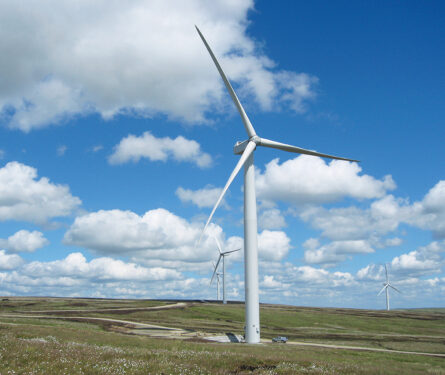
Positive interventions for renewables
Just weeks into the new government and we have seen significant changes to planning policy for renewables, positive changes that have already been reflected in decision-making at MHCLG. Local level decision-making will need to follow the lead, creating opportunities across the country.
Labour’s Manifesto pledge to ‘make Britain a clean energy superpower’ is well underway, with a raft of positive interventions announced, including:
• Lifting the de facto ban on new onshore wind development in England.
• Launching publicly owned Great British Energy, backed by a bill in Parliament and £8.3 billion.
• Announcing a partnership between Great British Energy and the Crown Estate to support new offshore energy generation in England and Wales.
• Establishing a private sector-led Onshore Wind Taskforce and Reactivating the Solar Taskforce.
The government is now consulting on a revised NPPF that includes the following proposed amendments in support of renewable energy generation.
Support for proposals
The most significant amendment stipulates that local planning authorities (LPAs) will be required to support planning applications for all forms of renewable and low carbon energy development.
Significant weight to benefits
LPAs will be required to “give significant weight to a proposal’s contribution to renewable energy generation and a net zero future”.
Areas suitable for energy infrastructure
LPAs will be required to “identify”, rather than “consider identifying”, “suitable areas for renewable and low carbon energy sources and supporting infrastructure, where this would help secure their development”.
Onshore wind
A significant amendment removes the requirement for new commercial-scale onshore wind projects to be located within “suitable areas” (as defined in local plans). The requirement for “community support” has also been removed. The Community Benefits Protocol is set to be updated by the government imminently
Green Belt / Grey Belt
The introduction of paragraph 152 states that “housing, commercial and other development [e.g. renewable and low carbon energy development] in the Green Belt should not be regarded as inappropriate” where “a) the development would utilise grey belt land in sustainable locations, the contributions set out in Paragraph 155 are provided, and the development would not fundamentally undermine the function of the Green Belt across the area of the plan as a whole; and b) there is a demonstrable need for land to be released for development of local, regional or national importance”.
This implies that if land can be shown to meet the relevant tests, the requirement to demonstrate ‘very special circumstances’ for development within the Green Belt would not apply.
Repowering and life extension
An amendment related to repowering or life extension would still require
“significant weight to be applied to the benefits of utilising an established site”, but the requirement to only approve an application if its impacts are (or can be made) acceptable would be removed.
Agricultural land
Reference to the requirement to consider the “availability of agricultural land for food production” when deciding on sites most appropriate for development has been removed.
The Secretary of State recently overturned the Sunnica Energy Farm Development Consent Order application decision (a 500MW solar generation station and battery energy storage system), concluding that the public benefit of meeting the urgent need for low carbon energy production outweighed the temporary loss of food production.
Thresholds for NSIPs
The NPPF consultation also sets out the following proposed thresholds upon which renewable and low carbon energy generation projects could be considered as a nationally significant infrastructure project (NSIP):
• Onshore wind – introducing a threshold of 100MW
• Solar – raising the threshold from 50MW to 150MW
Projects which meet these thresholds would be required to submit a planning application for a Development Consent Order, rather than through the relevant LPA.
Next steps
tor&co has provided planning, environmental planning, landscape, heritage and strategic communications solutions to the renewable energy sector since 1992. We serve a wide range of clients including utility companies, renewable energy developers, landowners, the public sector and the investment industry.
If you would like to discuss how these proposed changes could affect your proposals, please contact Amar Benkreira for a no-obligation discussion.
amar.benkreira@torandco.com
07897599344